|
|

|
|
|
|
|
ARTIFACTS &
IMAGES OF THE AFTERCULTURE
Source material for an
anthropology of the
future
|
|
|
|
|
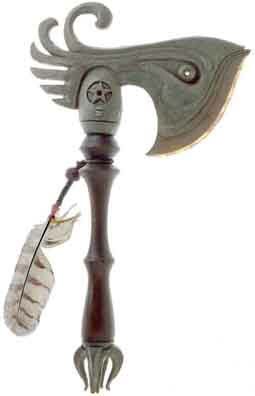
|
|
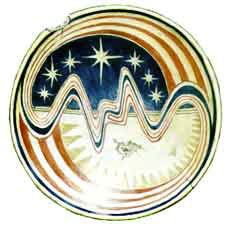
|
|
|
|
|
Ceremonial plate
|
|
|
|
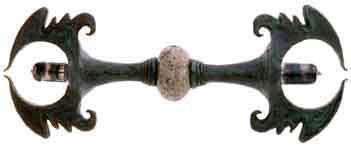
|
|
|
|
|
Spirit weapon
|
|
Spirit weapon
|
|
|
|
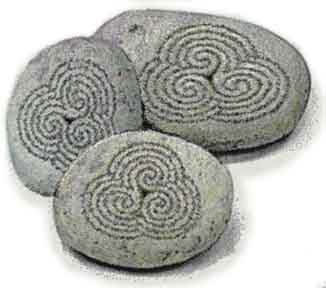
|
|
|
|
|
Triple Ripple stones
Maintaining the energies of Art, science and
religion in happy balance is a matter of daily
concern in the Afterculture.
The ubiquitous
Triple Ripple
sign
cut into these stones shows the three in
harmony.
|
|
|
|
|
Sacred traditions emerge from a people with
deeply shared beliefs. Such a people usually
develop a rich decorative language that brings
their cosmology into everyday life. So it is that
medieval Christians, Hopis, Tibetans or Celts all
“read” their art as surely as we our
roadsigns.
Another measure of a culture is how it honors
three basic human urges: the inclination towards
beauty of art , the desire to
measure and manipulate the manifest world, or
science, and the
pull of the invisible and transcendental which
animates religion. Art, science
and religion each generate marvelous insights and
experiences--and each is susceptible to
obsession and to marginalizing the others. When
this happens on a grand scale, history has its
moments of obsession such as the Inquisition. These
unbalanced times are easy to spot in hindsight, but
we tend to be hypnotized when they happen in the
present (as in our blindness to today’s
dictatorship of Big Science).
When these three forces are gracefully balanced,
they free our attention to move in another
direction, which in the Triple Ripple design of the
Afterculture (above) is the
opening at the very center of the
three ripples. This might be called the
directionless
direction--the Great
Mystery--and it lies beyond the
confines of any discipline or methodology. Moving
in this direction, people and institutions flower,
wisdom grows, and golden ages unfold.
|
|
|
|
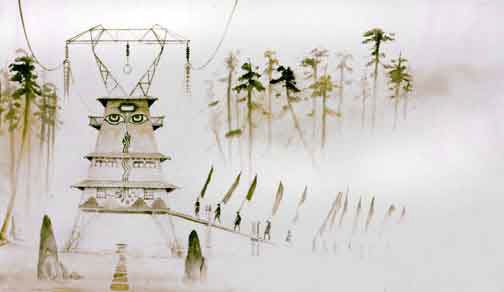
|
|
|
|
Young
men entering the High-Tension Kiva
Egypt, Babylon, Greece, Rome--every
civilization has had a given life span. Eventually
it uses up its resources, ages, becomes unable to
respond to new challenges--and collapses. We
find it difficult to believe this could happen to
us. But if---or when--our modern
civilization plays out, what would come after?
In the West-African language of Akan, there is a
word, Sankofa, which means “returning
to the past in order to move forward.” Aware
of the environmental and spiritual catastrophes of
our time, the folk who emerged afterward might
instinctively turn to the simpler life-support
patterns of indigenous people. Become an indigenous
people.
It is an intriguing thought. Here is a look at a
possible future where our children’s
children’s children have evolved into a new
kind of native people, and are searching out
appropriate ways to “walk in a sacred
manner” once more.
|
|
|
|
|
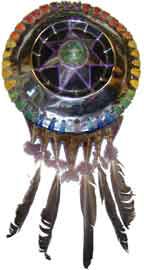
|
|
|
|
|
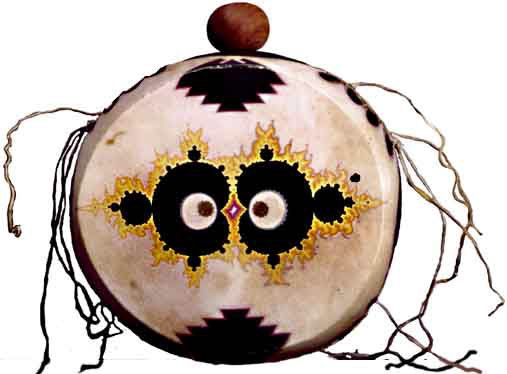
|
|
|
|
Chaos-vision Drum
|
|
|
|
|
Spirit Shield
|
|
|
|
|
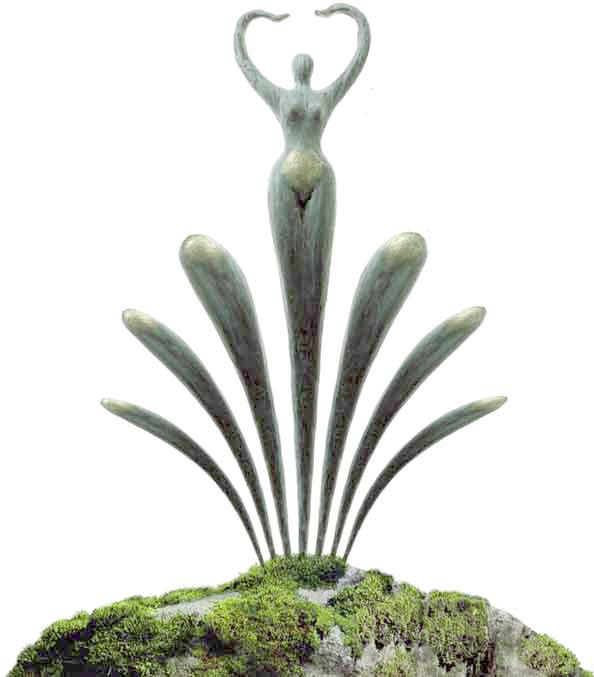
|
|
|
|
Emergence Mother (Gaiamama)
|
|
|
|
|
For the vast spread of our time on earth,
traditional tribal life-patterns have successfully
maintained ecological and spiritual balance and we
must now turn to them for guidance if we are to
escape our present crisis. A worthy tribal culture
of the future would not be a simple return to
archaic practices but would be an evolutionary
synthesis of old and new. Imagine a people grounded
in Traditional life-patterns who gracefully
incorporate the useful scientific knowledge and
global spiritual understandings of our time. To be
truly sustainable, they would by necessity have a
radically simplified life style.
|
|
|
|
|
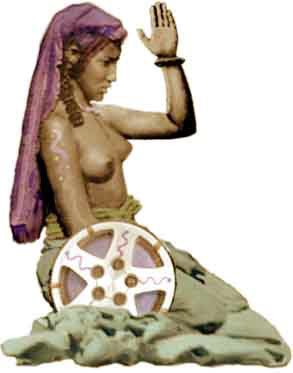
|
|
|
|
|
Secret initiations
|
|
|
|
|
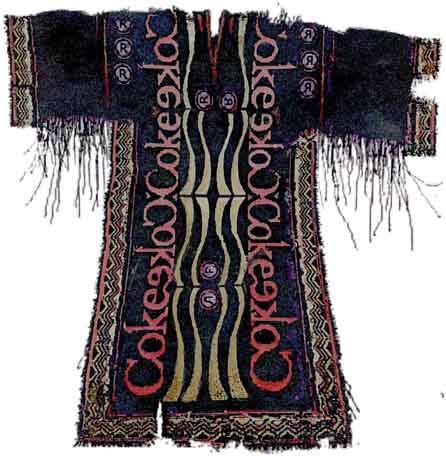
|
|
|
|
|
Shaman's robe
|
|
|
|
|
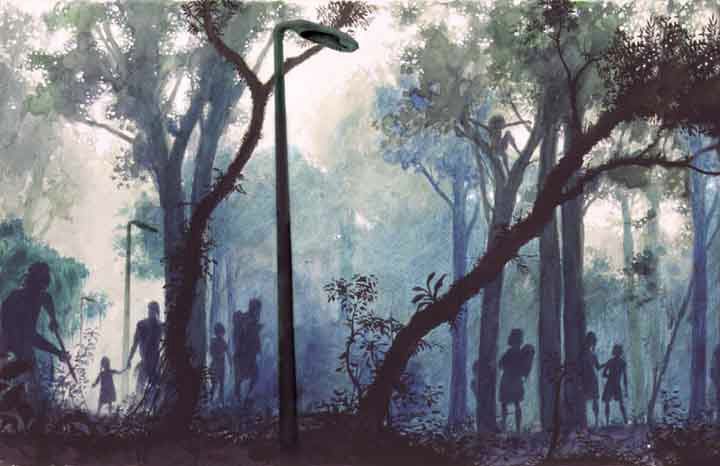
|
|
|
|
There will be a restoration of cultural biodiversity. The Forest
People are learning to live as simply as a herd of deer.
|
|
|
|
|
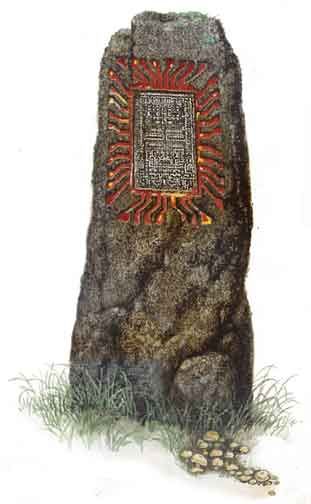
|
|
|
|
|
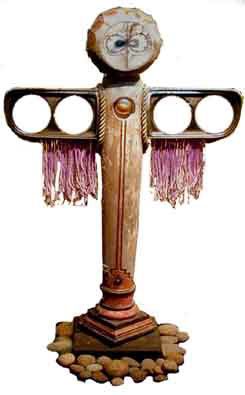
|
|
|
|
|
Power-Rising totem
|
|
Standing Stone
|
|
|
|
|
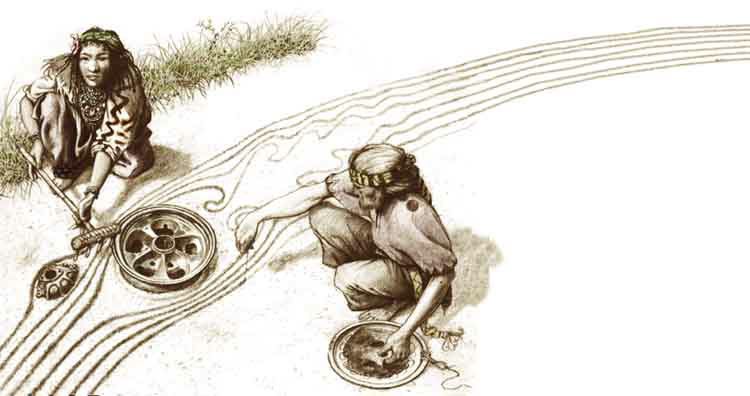
|
|
|
|
Flow painters preparing ritual space
|
|
|
|
|
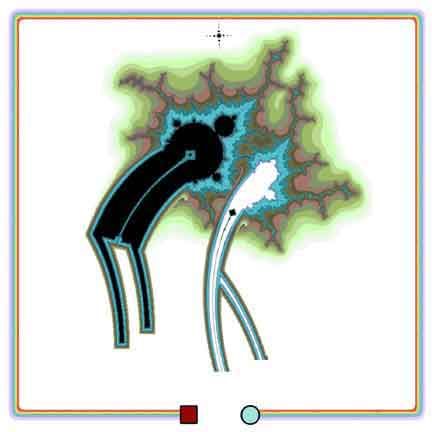
|
|
|
|
|
Great Marriage Sand painting
|
|
|
|
|
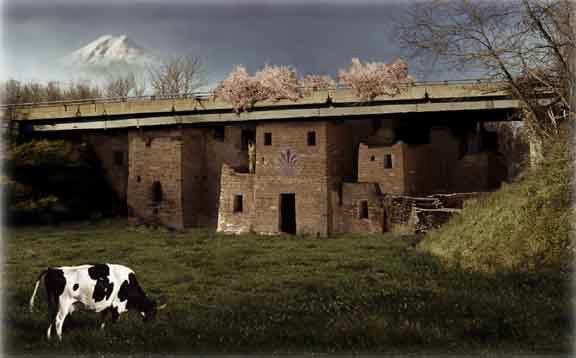
|
|
|
|
|
Route 82 & 30 near what
was once Coatesville
|
|
|
|
|
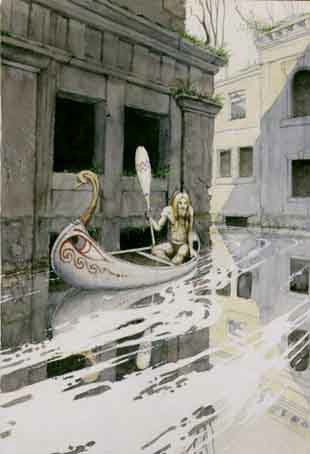
|
|
|
|
|
|
|
|
|
|
Final
Thoughts
America has always been a land of destiny. We
have always looking forward to a rosy future, first
by westward expansion, then via Tom Swift and his
Electric Things, But the realities of ill-conceived
ideals have finally caught up to us. The West was
bought by genocide, Tom Swift left us with nuclear
dumps and ozone holes. There are still official
candidates for the Cool Tomorrow. There's the Bill
Gates's Virtual World where everyone's on-line, and
your home says hello--but no one's
particularly interested except LCD manufacturers.
Star Trek had the hum for a while, but cyberpunk
science seems more plausible now. Becoming a dot
com millionaire and retiring at 25 would be
admirable, but behind every shining Epcot City the
rain forests are burning, and we all smell the
smoke.
The truth is that for the first time we are
bereft of a positive vision of where we are going.
This is particularly evident among kids. Their
future is either Road Warrior post-apocalypse, or
Blade Runner mid-apocalypse. All the futuristic
computer games are elaborations of these scenarios,
heavy metal worlds where civilization has crumbling
into something weird and violent (but more exciting
than now).
The AFTERCULTURE is an attempt to transmute this
folklore of the future into something deep and rich
and convincingly real. If we are to pull a
compelling future out of environmental theory and
recycling paradigms, we are going to have to clothe
the sacred in the romantic. The Afterculture is
part of an ongoing work to shape a new mythology by
sources as diverse as Thoreau and Conan and Dances
with Wolves and Iron John. The Afterculture is not
"against" the problems of our times, and its not
about "band-aid solutions" to the grim jam we find
ourselves in. It's about opening up a whole new
category of solutions, about finding another way of
being: evolved, simpler, deeper, even more elegant.
Even more cool. Even very cool.
|
|
|
|
|

|

|
|
|
|
|
|
|
|
|
|
|
|
|
|
|
|
|
|
|
|
|
|
|
|
|
|
|
|
|
|
|
|
|
|
|
|
|
|
|
|
|
|
|
|
|
|
|
|
|
|
|
|
|
|
|
|